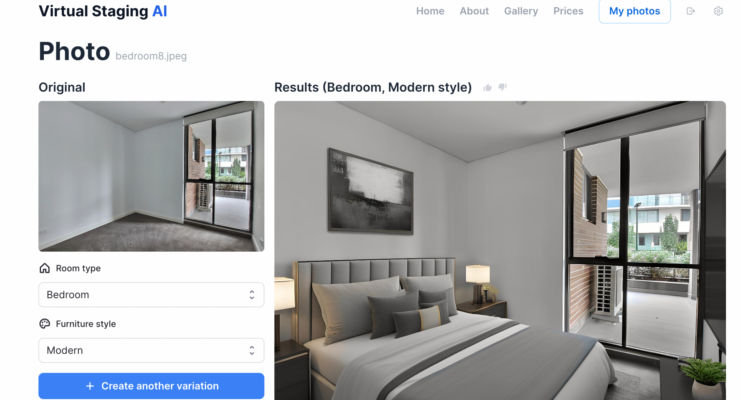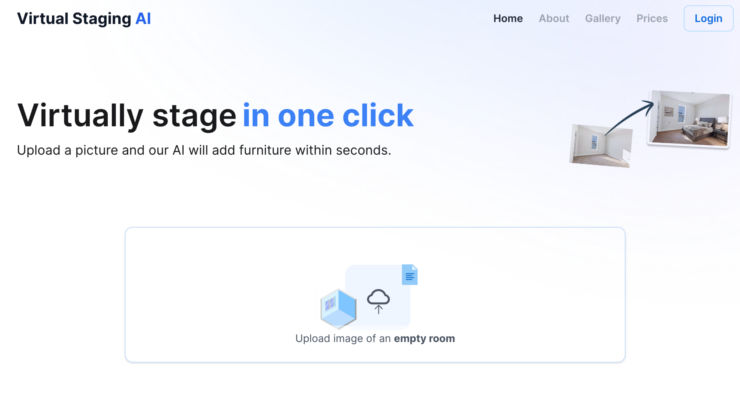Virtual Staging AI: Revolutionizing Real Estate with the Power of Artificial Intelligence
In an era of rapid technological transformation, the real estate industry has been yearning for solutions that offer both speed and quality. Virtual staging, the art of digitally filling vacant spaces with furnishings, has traditionally been a labour-intensive, costly process requiring specialized designers. That was until Virtual Staging AI, a disruptive start-up hailing from the Harvard Innovation Lab, leveraged the power of Artificial Intelligence (AI) to revolutionize the scene.
Easy-to-Use Interface with Unbeatable Speed
Virtual Staging AI’s platform is refreshingly simple. Users can upload an image of the empty space they wish to stage, select a room type—be it a bedroom, living room, or otherwise—and choose their preferred furniture style, from modern and Scandinavian to industrial. A mere 30
seconds later, they receive a virtually staged photo of the room. This rapid turnaround is a game-changer. Traditional virtual staging services require at least a day or two to deliver results, making Virtual Staging AI’s 30-second service nothing short of ground-breaking.
Cost-Effective Plans and Free Revisions
Economic efficiency is another strong suit of Virtual Staging AI. For a basic fee of $15 per month, users can upload up to 12 images; the standard plan at $35 allows for 50 images, and the enterprise plan at $149 provides for 250 images. To put it in perspective, the standard plan equates to less than $1 per image—a bargain considering the industry’s average rates. However, what truly sets Virtual Staging AI apart is the concept of “free revisions.” For each uploaded image, users can generate as many renders as they wish at no extra cost. This means they can experiment with different room types and furniture styles, offering potential buyers or renters multiple looks for the same space.

Eliminating the Complexity
Virtual staging, though invaluable, has its hurdles when human designers are involved. Requirements often get lost in translation, leading to time-consuming and costly revisions. With Virtual Staging AI, the process becomes streamlined. Users don’t need to provide intricate instructions; they simply click a button and let the AI work its magic.
The Trial Run—No Strings Attached
For the sceptical or curious, Virtual Staging AI offers a trial run directly on their website without any requirement for sign-up. Although these trial images bear the company’s watermark, they serve as an excellent showcase for the speed, quality, and versatility of the service.
The Bottom Line
Virtual Staging AI fills a significant void in the real estate market by offering quick, affordable, and high-quality virtual staging solutions. Its seamless platform and innovative use of AI technology transcend traditional barriers, making it an essential tool for real estate professionals, interior designers, and homeowners alike. With its quick turnaround, cost-effective pricing, unlimited revisions, and ease of use, Virtual Staging AI is truly redefining the standards of the virtual staging industry.
Try virtual staging for free on virtualstagingai.app.









